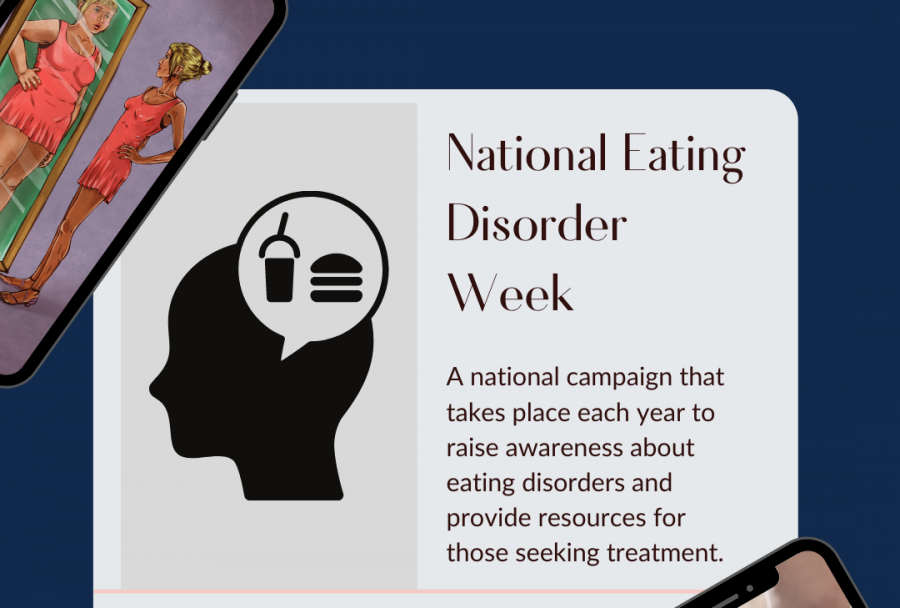NEDA Week: Highlighting The Impact of the Pandemic on Eating Disorders
The pandemic has greatly exacerbated peoples’ struggles with eating disorders.
March 10, 2021
On the last week of February, the National Eating Disorders Association (NEDA) celebrated this year’s NEDAwareness Week. Especially in the stress-induced times of this past year, the focus on eating disorders among high school students has become all the more important.
Eating disorders can be caused by a huge range of factors: anything from genetics, sociocultural pressure, or mental health issues. While the exact cause of eating disorders is yet to be determined, what we do know is that these disorders affect a large percentage of the teen and adult population. According to NEDA’s website, “national surveys estimate that 20 million women and 10 million men in America will have an eating disorder at some point in their lives.” Many of these eating disorders develop in adolescence, due to the stresses of athletics, peer pressure, academics, puberty, social media, and many other factors. In addition, NEDA claims that approximately 10-20% of women and 4-10% of men may also develop eating disorders by college.
In the past year, the risk of eating disorders has increased dramatically. The pandemic contributed to this increase in risk given the disruption of our daily lives, creating excessive amounts of time for self-destructive behavior. In July, a survey in the International Journal of Eating Disorders found that 62% of people in the U.S. with anorexia saw an increase in struggles with their eating habits as a result of the pandemic. The additional time at home has had a significant impact on teenagers, as they were provided with unlimited time to focus on bad habits. Furthermore, “the pandemic has made it even easier to compare ourselves to others,” SHS student Alexa Rosenbloom ’22 explained. “We’re spending a lot more time on social media than usual. Apps like Instagram make it easy to constantly compare ourselves to other people and pick out our flaws.” Constant triggers like these, along with the amount of stress that has come from the pandemic, further emphasize the need to place a focus on acknowledging eating disorders and learning how to cope with them, for the benefit of friends, family, or yourself.
Many people struggle with eating disorders on their own because of anxiety or insecurity, but breaking this stigma associated with eating disorders could encourage people to ask for help when they need it. “We can’t start addressing eating disorders without addressing how students’ self esteem is affected by their environment (other peers, adults, the media, the SHS culture),” SHS student Janmariz Deguia ’22 said. “People who struggle with food need support and we should make it so that those resources to get support are accessible.” Getting the help of friends, family, or a mental health professional can make a big difference. We should continue to expand awareness for mental health past NEDAwareness Week, as conversations like these can help the people closest to us be comfortable enough to seek the help they need.
If you are struggling with an eating disorder, you can contact the NEDA helpline through https://www.nationaleatingdisorders.org/help-support/contact-helpline
You can also access SHS student Janmariz Deguia’s mental health awareness initiative at https://www.projectcalendula.com to learn more.


























